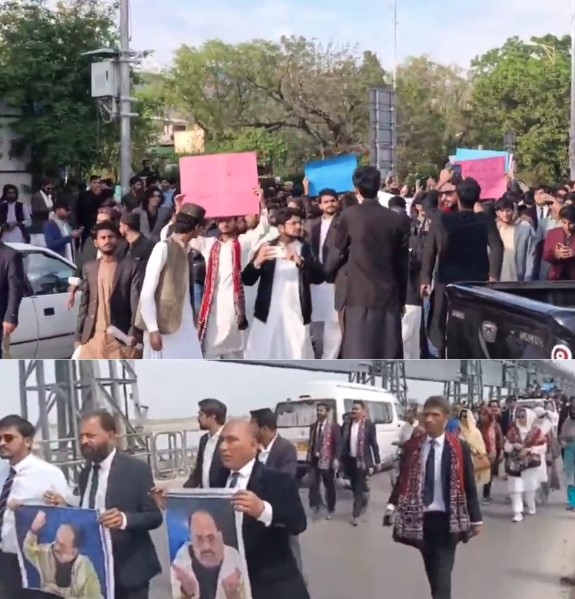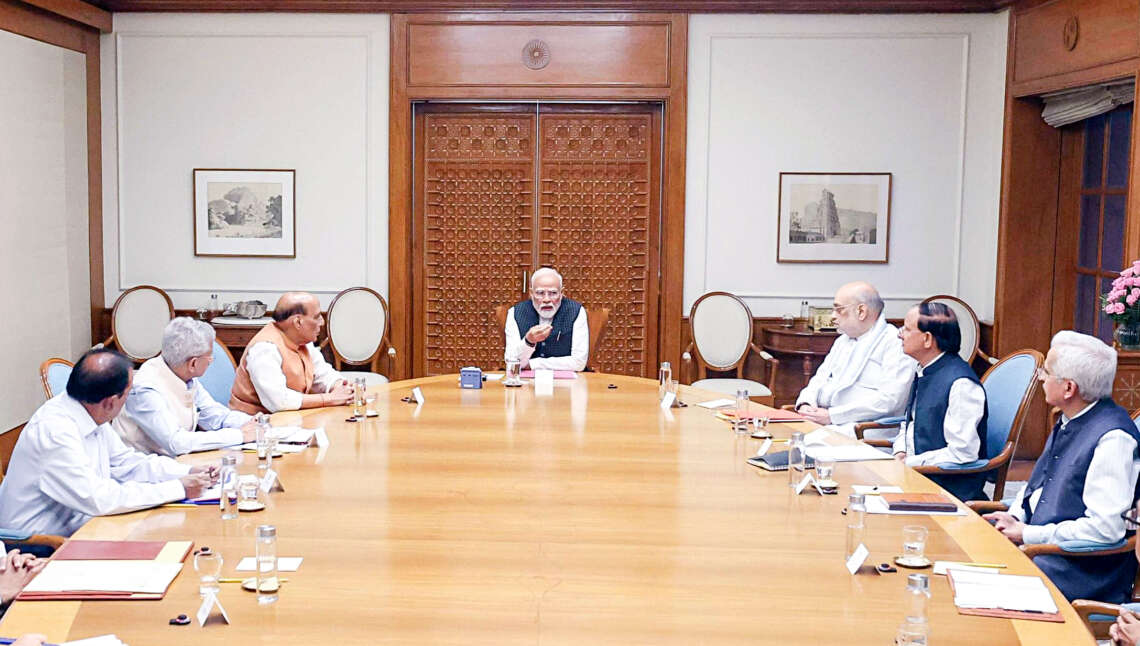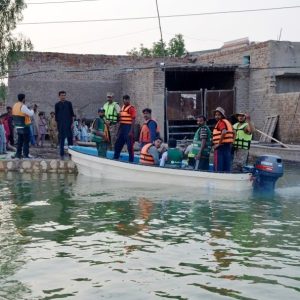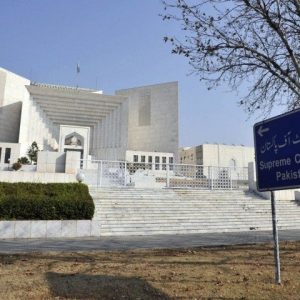The protests, which have been ongoing for weeks, have gathered significant attention from various sectors of Sindh’s civil society, including nationalist parties, farmers, writers, and members of the legal community.
Judicial activities in Sindh were brought to a standstill as lawyers across the province staged a province-wide boycott in protest against a controversial project to construct six new canals from the River Indus. The protests, which have been ongoing for weeks, have gathered significant attention from various sectors of Sindh’s civil society, including nationalist parties, farmers, writers, and members of the legal community.
According to reports from Dawn, courts in cities such as Karachi, Hyderabad, Dadu, Shaheed Benazirabad, Sanghar, and Naushahro Feroze remained closed throughout the day as lawyers across the province united to show their opposition to the canal project. The legal community expressed its solidarity with a long-running sit-in at the Babarloi Bypass, which has become the focal point of the protests. The project, which involves constructing canals on the Indus River, is seen as a direct threat to Sindh’s water rights, and the legal community has vowed to continue their protest until the project is abandoned.
In Karachi, the district courts were completely shut down, with the Karachi Bar Association (KBA) announcing an indefinite closure of the courts. Imran Aziz, acting general secretary of the KBA, confirmed that the boycott would continue until further notice in support of the ongoing sit-in protests. Aziz emphasized that only legal professionals would be allowed access to the City Courts premises during this period. The lawyers’ action was not limited to Karachi alone; the All Sindh Lawyers Action Committee, representing a unified front of legal professionals across the province, decided to expand their protests to new locations, including Kamo Shaheed, Kashmore Dera Mor, and the outskirts of Karachi.
At a press conference, Aziz reaffirmed the committee’s unwavering stance against the controversial canal project. He called the project unconstitutional and said that it would severely undermine Sindh’s agriculture, water rights, and provincial autonomy. He emphasized that the protests would continue until all actions deemed harmful to the land, water, and people of Sindh were abandoned. Plans were announced for a sit-in outside the Malir Court, which was later moved to Bin Qasim Link Road in Gulshan-i-Hadeed. Aziz called on fellow lawyers and members of civil society to join the protest, which he described as “historic” and vital for the protection of the River Indus and the future of Sindh.
The canal project, which is part of Pakistan’s broader “Green Pakistan” initiative, has sparked widespread opposition across Sindh. Nationalist parties and various civil society groups argue that the project aims to divert water from the Indus River for the creation of agricultural land in the Cholistan Desert. The plan, with a reported cost of USD 720 million, is seen as a deliberate attempt to seize the province’s water resources and benefit agricultural ventures run by the military, with little regard for the ecological and agricultural sustainability of Sindh.
The Balochistan Post reports that protests, strikes, and sit-ins have intensified in various cities across Sindh. In Khairpur, lawyers have been staging a sit-in for three consecutive days, leading to traffic jams on the vital routes between Punjab and Sindh. Nationalist groups, too, have joined in by staging sit-ins on railroad tracks, effectively halting train operations. The opposition to the project has spread across Sindh, with no signs of waning support for the cause. Protests have also reached Hyderabad, where demonstrators participated in the “Save the Indus Awareness March,” demanding the immediate abandonment of the canal project.
The controversy surrounding the canal project has drawn a sharp response from Sindh’s ruling party, the Pakistan Peoples Party (PPP). Sindh Chief Minister Murad Ali Shah has made it clear that the provincial government will not support the project, and he has threatened to pull the PPP out of the federal coalition if the plan is not scrapped. Shah has reiterated that the PPP-led provincial government will reject the project before the upcoming budget, signaling that the party is determined to protect Sindh’s water rights and agricultural interests.
The canal expansion has also ignited further political drama. Altaf Hussain, the founder of the Muttahida Qaumi Movement (MQM), has accused the federal government of attempting to enrich Punjab at the expense of Sindh’s agricultural and ecological survival. Hussain has been a vocal critic of the project, calling it the “Green Punjab Project” rather than a “Green Pakistan” initiative. He argues that the project is a political maneuver to divert resources away from Sindh and deprive the province of vital water resources. Hussain has gone as far as accusing Asif Ali Zardari, the PPP chairman and former president of Pakistan, of supporting the canal project covertly, despite the party’s public opposition to it. Hussain’s criticism adds to the growing sense of distrust and dissatisfaction among Sindh’s political leaders regarding the federal government’s plans for the Indus River.
As protests continue to grow in intensity, the future of the canal project remains uncertain. What is clear is that the legal community, farmers, nationalist groups, and ordinary citizens of Sindh are united in their opposition to the plan. The protests show no signs of slowing down, and it remains to be seen how the federal government will respond to the mounting pressure. For now, the people of Sindh continue their fight for their water rights, the future of their agriculture, and the protection of the River Indus.













